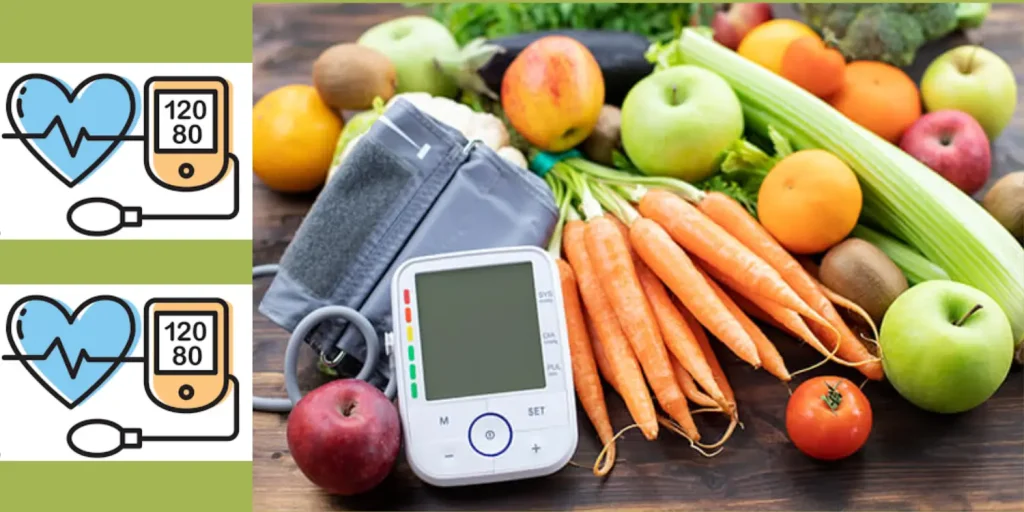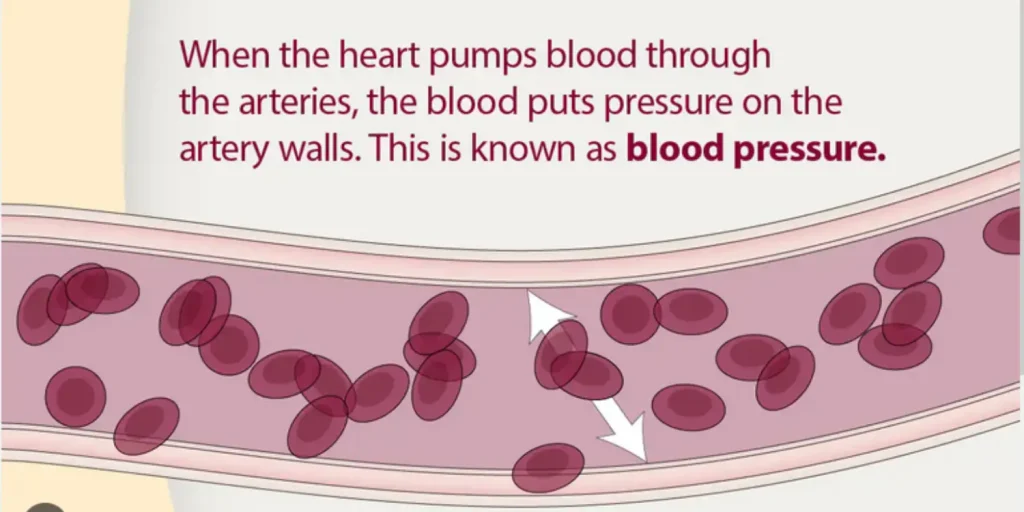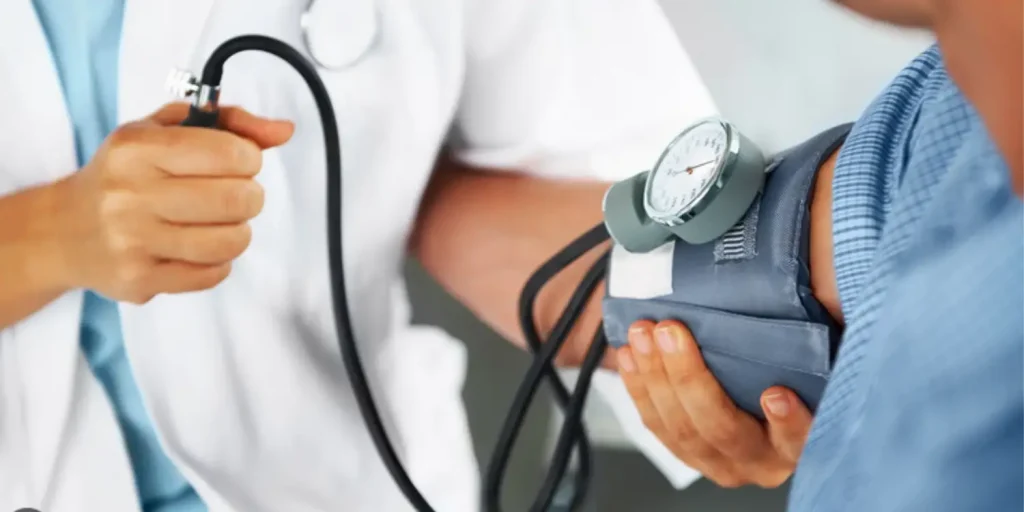Introduction
Your blood pressure shows how hard your arteries need to work as blood flows through them. Blood pressure serves as the foundation for heart health and shows how well your overall body functions. Our review explores every aspect of blood-pressure, from its types to causes of abnormalities and worldwide health effects. Our article offers high-quality information that authorities have about blood-pressure for everyone interested in health research or wellness.

What Is Blood Pressure?
Blood-pressure is measured in millimeters of mercury (mmHg) and is expressed as two values:
Systolic Pressure: During the heart’s muscle contraction, the blood-pressure rises in the arteries. The first number in a blood-pressure measurement shows this reading’s peak value.
Diastolic Pressure: The level of pressure in your arteries when your heart takes breaks between beatings. This is the lower number.
A person’s usual blood-pressure numbers should hover between 120 and 80 mmHg but may shift depending on an individual’s age, activities, and medical condition.
Your blood pressure levels face different problems
Blood pressure that stays too high is medically known as hypertension.
Your blood-pressure remains high when you consistently measure above healthy pressure ranges. It is categorized into:
Primary Hypertension: Rising blood pressure usually emerges naturally as you get older and depends on what you eat and how you live, plus runs within your family genetics.
Secondary Hypertension: Normal blood-pressure problems come from health issues inside the body, such as kidney disease or hormonal problems.

Your blood pressure drops below normal levels.
Your blood-pressure falls below expected levels when you have hypotension. You may feel dizzy and faint throughout mild episodes, while extreme cases bring on shock.
White Coat Hypertension
Brief spikes in blood-pressure happen because of anxiety during medical appointments.
Masked Hypertension
People show normal blood-pressure results when tested in doctor’s offices, but their readings show increased numbers outside clinical spaces.
Causes and Risk Factors
Hypertension:
Genetic predisposition
Obesity
High sodium intake
Sedentary lifestyle
Chronic stress
Excessive alcohol consumption
Hypotension:
Dehydration
Nutritional deficiencies
Blood loss
Endocrine disorders
Age-Related Factors:
As we age, our blood vessels naturally lose their flexibility, which raises blood pressure.
Older adults commonly develop low blood-pressure when standing because their body does not adjust well to posture changes.

Measuring Blood Pressure
You can measure blood-pressure most often by using a sphygmomanometer. More families choose automated blood-pressure monitoring tools for home use. Key aspects of accurate measurement include:
Proper cuff size
Take at least 5 minutes of rest before testing begins
Set the arm next to your heart
Do not consume caffeine or nicotine products before your measurement
The World Plight of blood-pressure Issues Overwhelms Us All
Blood-pressure abnormalities known as hypertension damage millions of people worldwide through heart disease.
Less-common hypotension increases medical problems mainly for older adults.
Living differently plus urbanization combined with our eating patterns makes blood-pressure problems grow bigger worldwide.

Managing Blood Pressure: Lifestyle Interventions
Dietary Modifications:
DASH Diet: The DASH Diet teaches people to eat more fruits, vegetables, whole grains, and low-fat dairy foods.
People should eat no more than 2,300 mg of salt daily.
Both trans fat and saturated fat need reduction in daily intake.
Physical Activity:
Doing steady-paced cardiovascular workouts that include walking, running, and swimming helps control blood pressure.
Do strength exercises two times weekly.
Weight Management:
You can lower your blood-pressure when you shed just a small amount of your body weight, between 5% and 10%.
Stress Management:
Beyond medication, doctors prescribe yoga to meditate and practice deep breathing steps to help patients.
Control your workload and stay aware of your thoughts.
Limiting alcohol and tobacco:
You should drink limited amounts of alcohol.
When smokers stop the habit, their blood-pressure decreases, and they enjoy better heart health results.

Medical Management
Antihypertensive Medications:
ACE inhibitors
Beta-blockers
Calcium channel blockers
Diuretics
Managing Hypotension:
Your doctor will tell you to take more fluids and salts into your body.
Doctors recommend compression stockings to help blood move better through your body.
Regular Monitoring:
Use home monitors to watch for changes in blood-pressure numbers.
You should meet regularly with your healthcare team.
People with different chronic health problems need to control their blood-pressure levels.
Cardiovascular Diseases: Your risk of suffering heart attacks and strokes goes up when your blood-pressure stays high.
Kidney Disease: Excessive blood-pressure can hurt your kidneys and make them sick permanently.
Diabetes: Diabetes and hypertension commonly appear together, making the risks to health greater.

Emerging Trends and Research
Wearable Technology:
You can now measure your blood pressure using certain smartwatch models.
These new technologies can give us accurate results right away.
AI and Big Data:
Our system uses predictive analytics to detect who is at high risk of developing hypertension.
Our recommendations fit better with the particular medical history of each patient.
Genomic Research:
Scientists study which genes cause high blood pressure problems.
Healthcare providers use individual patient traits to plan treatment programs.
Blood Pressure Monitoring in Specific Groups of People
Pregnancy:
Hypertension problems during pregnancy create serious dangers for mothers and their babies.
Regular tracking and care help stop health problems from developing.
Children and adolescents:
Hypertension continues to increase because people are overweight and live unhealthy lives.
Detecting problems at an early stage requires quick medical help.
Elderly:
Older adults often develop high blood-pressure with a single elevated systolic number.
To protect patients, healthcare providers should watch for side effects from drug combinations.

Myths and Misconceptions
Myth: Most people with hypertension experience no sign of the condition.
Fact: This condition has no noticeable symptoms, and people call it the “silent killer.”
Myth: Blood pressure concerns appear mainly in senior citizens.
Fact: Hypertension shows up in people across every age group.
Myth: Strict salt limitation removes all risk of high blood-pressure.
Fact: Even with lower salt intake, blood-pressure risks depend on multiple aspects of your genetics and lifestyle.
FAQs About Blood Pressure
What numbers make up safe blood pressure levels?
Generally, below 120/80 mmHg.
How frequently people should measure their blood pressure system depends on their situation.
People need annual blood tests but need tests more often when dealing with risk factors.
Stress does not alone trigger increased blood pressure in people.
Continuous stress makes a difference but needs other factors to trigger hypertension.

Conclusion
Knowing your blood pressure numbers ensures better health and protects you from developing chronic diseases. Following healthy living habits and checking blood pressure often, plus visiting a doctor early, helps people control their blood pressure well. Through this full guide, our readers will learn practical steps to manage their heart health.
Putting blood pressure first can set you on the path toward better health and personal satisfaction, no matter your fitness level or medical condition. Get information and take steps now to control your blood pressure effectively.